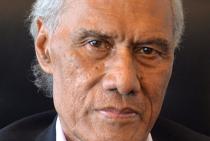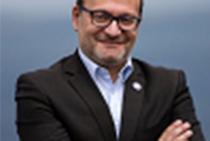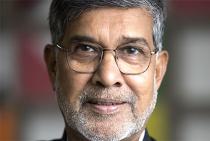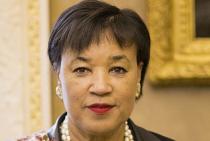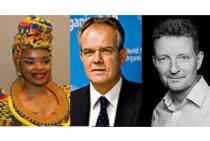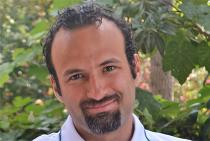Voice Recording. Na‘e ‘i ai ‘a e hoha‘a lahi ‘a e tangata‘eiki palemia, ‘Akilisi Pohiva (78) ki he fa‘unga ‘a hono pule‘anga ‘i ha‘ane mavahe atu mei he mamani ‘oku tau ‘i ai. Ko e liliu fakapolitikale na‘e faka‘amu ki ai ‘oku kehe ‘aupito ia mei he me‘a ‘oku hoko. Na’e ‘i ai ‘a ‘ene manavasi‘i ki ha ngaahi fepakipaki ‘e hoko. Na‘e faka‘eke‘eke ai ‘e Pesi Fonua, ‘Etita ‘o e Matangi Tonga Online ‘o fekau‘aki pea mo e tu‘unga ‘oku ‘i ai ‘a e fonua, ‘osi eni ‘a e ta‘u ‘e hiva pea mei he liliu faka politikale na‘e fai ‘oku kei fai pe ‘a e ta‘e femahino ‘aki fekau‘aki mo e fakalelei faka politikale na‘e tali ‘e he Fale Alea ‘i he 2009. ‘Oku mau tukuatu heni ‘a hono faka‘eke‘eke ‘e Pesi Fonua ‘a e Palemia kuo unga fonua, ‘Akilisi Pohiva, na‘e fai ‘i he ‘aho 26 ‘o ‘Akosi ‘i hono ‘ofisi ‘i Nuku’alofa, ‘i ha ngaahi uike si‘i pe pea ne si‘i to tau ‘i he ‘aho 12 ‘o Sepitema 2019.
You are here
Results for Opinion
Friday 4 October 2019
Nuku'alofa, Tonga
Tuesday 1 October 2019
1 comment
Beijing, China
The celebration of the 70th anniversary of the founding of the People’s Republic of China on October 1 will be an exuberant affair, involving glitzy cultural events, an extravagant state dinner attended by Chinese and foreign luminaries, and a grand military parade in Tiananmen Square. And, at a time of high tensions with US President Donald Trump’s administration, it will be imbued with an extra dose of patriotic enthusiasm. But while China has much to celebrate, it also has much work to do. By Keyu Jin.
Friday 27 September 2019
Suva, Fiji
Geoengineering will save us from the climate crisis, its champions insist. By using technology either to remove carbon dioxide from the atmosphere or to deflect some solar radiation away from the Earth, they claim, we can undo the damage wrought by humanity’s failure to reduce greenhouse-gas (GHG) emissions. But while it certainly sounds like a convenient solution, there is no proof that it will work – and no telling what the side effects could be. In the view of Pacific islanders, it barely merits discussion. By François Martel.
Tuesday 24 September 2019
Paris, France
In a profoundly volatile world riddled with fractures, the temptation to embrace a seemingly reassuring path of withdrawal or isolation may be strong. In fact, avoidance of potential hazards seems only natural. For lack of a better alternative, we may be instinctively inclined to look inward in order to circumvent or at least mitigate the risks of a world that feels like end times, in which children are telling us the truth. By Rémy Rioux.
Tuesday 24 September 2019
New Delhi, India
On September 24-25, world leaders will attend a United Nations summit in New York to review progress toward the UN’s 17 Sustainable Development Goals. This will be the first UN summit on the SDGs since the adoption of the 2030 Agenda in September 2015. Since then, we have collectively made progress toward a more peaceful, safer, healthier, and more prosperous world. Sadly, however, we are currently on track to miss most of the SDGs and targets related to children – without which the fulfillment of the 2030 Agenda can remain only a distant dream.
Monday 16 September 2019
London, United Kingdom
The global transition from carbon-intensive fossil fuels to cleaner, more reliable renewables like wind and solar is already well underway. But the big question – for the 2020s and beyond – is how fast it will happen. A slow transition would mean that energy-sector incumbents continue to flourish, and we would all but certainly miss the emissions-reduction targets enshrined in the 2015 Paris climate agreement. But if the transition is rapid, incumbents will experience varying degrees of disruption – the price of keeping the Paris targets well within reach. As matters stand, both scenarios are possible, representing two paths that lie before us.
Tuesday 20 August 2019
1 comment
Auckland, New Zealand
Dear Australian Deputy PM ... Your fruit grows with the phosphate taken from the islands...where they can no longer bear fruit. Yuki Kihara 2019.
Monday 12 August 2019
London, United Kingdom
On the eve of the 50th Pacific Islands Forum Meeting taking place in Tuvalu this week, the Commonwealth Secretary-General Patricia Scotland recognises the existential threat which climate change poses to Pacific Islanders. She calls on governments across the globe to urgently meet the terms of the Paris climate change agreement, if we are to save our Pacific Islands, as the rising sea levels could literally engulf thousands of islands in the region by 2100.
Monday 12 August 2019
Cambridge-MA, USA
Digital technology has transformed how we communicate, commute, shop, learn, and entertain ourselves. But the current problems afflicting social media are a perfect example of what can happen when uniform rules are imposed with no regard for social context and evolved behaviors. The rich and variegated patterns of communication that exist off-line have been replaced by scripted, standardized, and limited modes of communication on platforms such as Facebook and Twitter. As a result, the nuances of face-to-face communication, and of news mediated by trusted outlets, have been obliterated. Efforts to “connect the world” with technology have created a morass of propaganda, disinformation, hate speech, and bullying. By Daron Acemoglu.
Wednesday 7 August 2019
New York, USA
In last year’s Pathways for Peace report – the result of a joint study by the United Nations and the World Bank – UN Secretary-General António Guterres warned that the world is facing a “dramatic resurgence” of conflict, which has caused immense human suffering and significantly undermined global order. If the world is to achieve the UN Sustainable Development Goals (SDGs) – and protect millions of people from deadly violence – urgent action must be taken to reverse this trend. By Rachel Locke and David Steven.
Monday 29 July 2019
New York, USA
How did the world’s two most venerable and influential democracies – the United Kingdom and the United States – end up with Donald Trump and Boris Johnson at the helm? Trump is not wrong to call Johnson the “Britain Trump” (sic). Nor is this merely a matter of similar personalities or styles: it is also a reflection of glaring flaws in the political institutions that enabled such men to win power. By Jeffrey D. Sachs.
Tuesday 23 July 2019
Manchester, United Kingdom
In a well-functioning parliamentary system, the state budget is overseen by a group of elected authorities in a relatively transparent manner. No one person has the power to shape the process in self-serving ways. Embedding checks and balances into governance – particularly to limit the executive’s discretionary budgetary authority – is integral to accomplish the kind of structural transformation developing countries need if they are to create more stable, prosperous futures well beyond 2030. By Tania Masi, Roberto Ricciuti, Antonio Savoia, and Kunal Sen.
Saturday 20 July 2019
New Delhi, India
Fifty years after astronauts first walked on the Moon, space wars have gone from Hollywood fantasy to looming threat. Not content with possessing enough nuclear weapons to wipe out all life on Earth many times over, major powers are rapidly militarizing space. Given the world’s increasing reliance on space-based assets, the risks are enormous. by Brahma Chellaney.
Thursday 18 July 2019
New York, USA
Blaming manufacturing-job losses on low-wage foreign competition, or, increasingly, on automation has become a staple of populist politics in developed countries. Nowhere is this truer than in the United States, where President Donald Trump campaigned on the issue in 2016 and has since launched a trade war with China. But US workers have long faced another source of competition much closer to home: prison labour.
Friday 12 July 2019
Geneva, Switzerland
An account of trauma will serve as a reminder to leaders around the world that violence, mental and sexual trauma, and substance abuse are interrelated issues that can have a deep and lasting impact on the lives of children. The evidence for this is overwhelming. This includes online abuse. The impact of violence lasts long after the abuse itself. Victims often experience lifelong social, emotional, and cognitive consequence and are more likely to become abusers themselves. By Zoleka Mandela, Etienne Krug, and Howard Taylor.
Wednesday 10 July 2019
Geneva, Switzerland
From infrastructure damage caused by extreme weather events to drought-induced food insecurity, there are many climate risks for which the world should urgently be preparing. But one of the areas where climate change poses arguably the most significant risk is barely being discussed: human health. By Seth Berkley.
Tuesday 2 July 2019
Wellington, New Zealand
Wherever one looks – the media, political leaders’ rhetoric, or online discussions – one finds a bias toward bad ideals. This is not to suggest that we (or most of us) endorse, say, racism, misogyny, or homophobia, but rather that we grant them efficacy. We believe that extremist ideals must be combated, because we implicitly consider them potent enough to attract new adherents, and contagious enough to spread. At the same time, we tend to take positive ideals less seriously. By Nicholas Agar.
Wednesday 26 June 2019
Kanokupolu, Tongatapu
The peace that was once an entitlement enjoyed by Tonga's residents and an attraction for visiting tourists has been stolen by the inconsiderate few, with the introduction of amplified sound systems with thumping bass. The Public Health Act does not permit any excessive noise, causing discomfort anytime, yet these laws are not enforced. - Shane Egan.
Tuesday 25 June 2019
Potsdam, Germany
The leaders of the G20 countries head to Osaka this week for their annual summit. United Nations Secretary-General António Guterres will address them before traveling to Abu Dhabi to finalize the arrangements for September’s UN Climate Action Summit. These meetings should set the world on course for the fastest economic transition in history. Yet both are likely to deliver incremental action, at best. By Johan Rockström
Tuesday 25 June 2019
Manchester, United Kingdom
Although the idea of the Internet “making the world a better place” is often ridiculed today, it’s easy to forget that this decade began amid optimism that new technologies would connect people, broaden access to information, and generate abundant new economic opportunities. Today, however, governments around the world are considering policies that would undermine the Internet’s openness and global reach. By Shamel Azmeh


